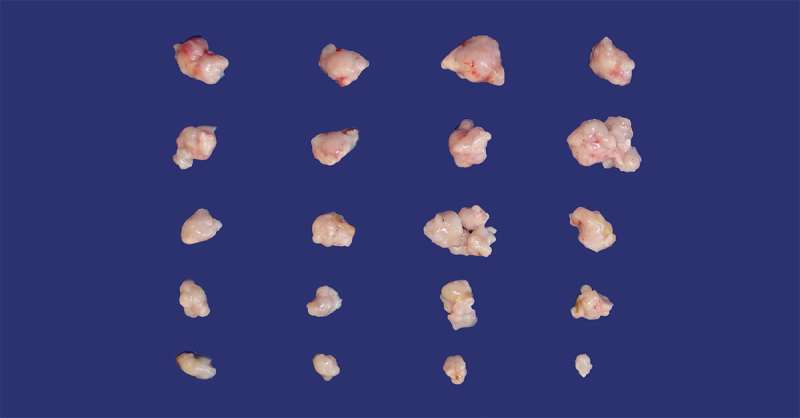This article has been reviewed according to Science X's editorial process and policies. Editors have highlighted the following attributes while ensuring the content's credibility:
fact-checked
peer-reviewed publication
trusted source
proofread
Research shows novel drug pairing could beat pancreatic cancer

Mutations in the KRAS gene are the major driver of pancreatic cancer. The resulting protein controls multiple signaling pathways involved in cell growth and survival. In cancer, the gene is mutated to be permanently "on," driving cells to excessively multiply and form tumors.
New drugs have recently been developed to inhibit KRAS and appear to be therapeutically promising. However, pancreatic cancer is especially prone to drug resistance. Most drugs only work for a short period of time before the cancer finds its way around them.
Previous experiments revealed a potential reason why: a group of genes upstream of KRAS, called ERBB, appears to become upregulated in response to KRAS inhibition. In other words, when KRAS goes down, ERBB goes up and drives KRAS and other related genes back up again.
To try to beat this potential source of drug resistance, researchers at University of California San Diego School of Medicine tested a novel combination of KRAS and ERBB drug inhibitors. The findings, published in Cancer Research, reveal the combination of drugs to be dramatically more effective and less prone to resistance than treatment with the KRAS inhibitor alone. The authors now recommend the drug combination be tested in clinical trials for human cancer patients.
"KRAS inhibitors have the potential to completely change the landscape of treating pancreatic cancer," said co-senior author Herve Tiriac, Ph.D., assistant research scientist in the Department of Surgery at UC San Diego School of Medicine and Moores Cancer Center at UC San Diego Health. "However, we need to do a lot of upfront testing to optimize KRAS therapy, or clinical trials might get a lot of negative data."
The study was the first to confirm that human pancreatic cells treated with the KRAS inhibitor MRTX1133 (Mirati Therapeutics) do indeed develop drug resistance and increase their expression of ERBB. But this resistance could be overcome by combining the drug with the FDA-approved pan-ERBB inhibitor Afatinib.
The combination of MRTX1133 and Afatinib also reduced the number of surviving cancer cells more than MRTX1133 alone. This pairing was more effective than combining MRTX1133 with EGFR inhibitors or drugs targeting different molecules downstream of KRAS.
Pancreatic cancer cells were so "exquisitely vulnerable" to MRTX1133 and Afatinib that the drugs showed a synergistic interaction, meaning the benefits of using the two drugs together were even larger than the sum of each one's individual effect. In other words, the drug pairing was greater than the sum of its parts.
The researchers also tested the drugs in a live mouse model of pancreatic cancer and found that mice treated with both drugs survived significantly longer than those treated with either drug alone. The use of both human and mouse models of pancreatic cancer, 2D cell cultures and 3D organoids and in vitro and in vivo measurements is a major strength of the study.
"The synergy between MRTX1133 and Afatinib was remarkable, and we strongly encourage the clinical testing of this drug combination for patients with pancreatic cancer," said co-senior author Andrew Lowy, MD, professor in the Department of Surgery and chief of the Division of Surgical Oncology at UC San Diego School of Medicine and clinical director for Cancer Surgery at Moores Cancer Center.
More information: Kevin Christian Montecillo. Gulay et al, Dual inhibition of KRASG12D and pan-ERBB is synergistic in pancreatic ductal adenocarcinoma, Cancer Research (2023). DOI: 10.1158/0008-5472.CAN-23-1313



















